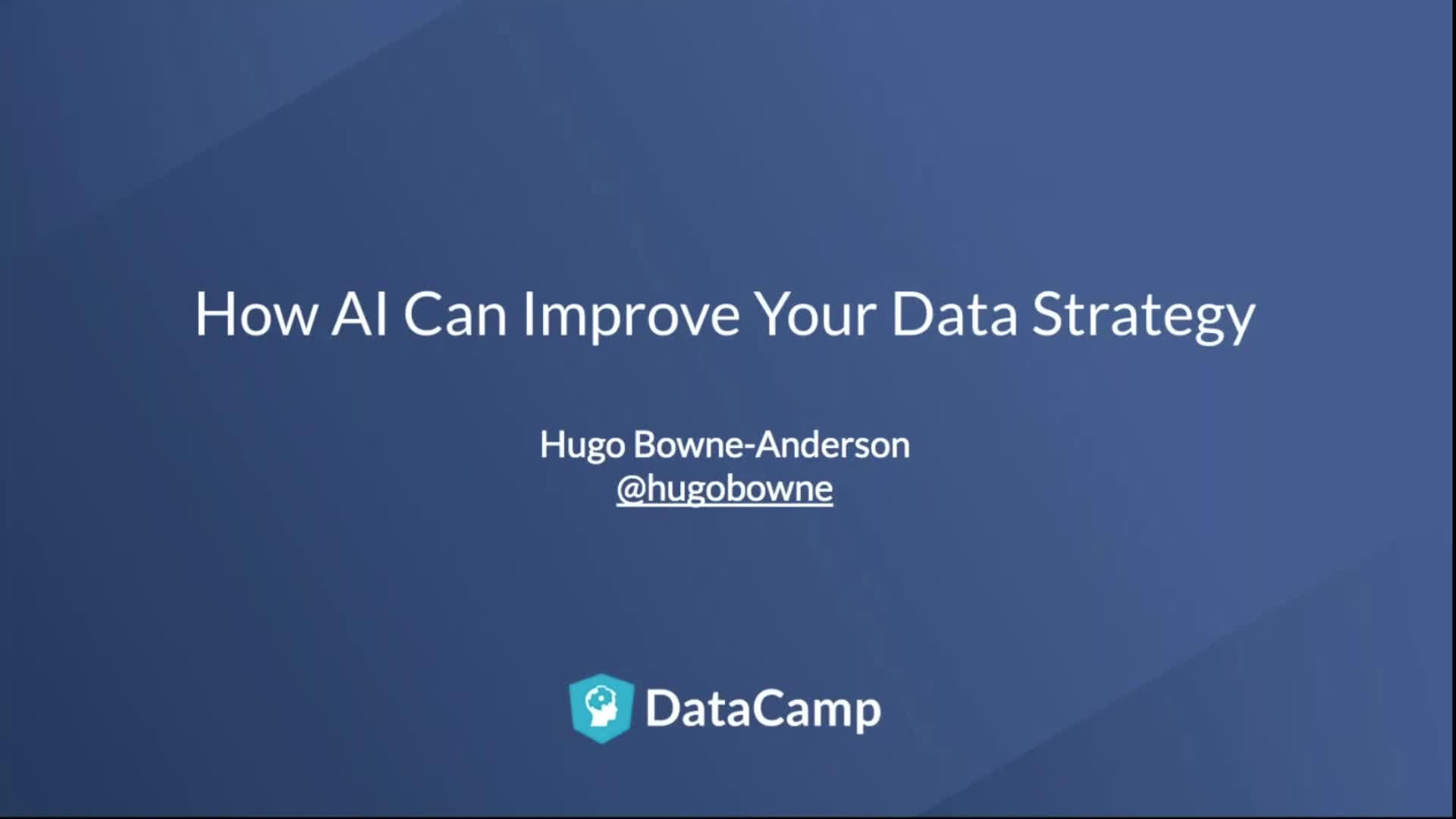Lautsprecher
Trainierst du 2 oder mehr?
Erhalten Sie für Ihr Team Zugriff auf die vollständige DataCamp-Bibliothek mit zentralisierten Berichten, Zuweisungen, Projekten und mehrVerwandt
The Definitive Guide to Machine Learning for Business Leaders
Craft a 21st-century data strategy to optimize business outcomes.infographic
Data Literacy for Responsible AI
Learn how data literacy fuels responsible AIwhite paper
Data Literacy for Responsible AI
Learn how data literacy is the currency that powers responsible use of AIwebinar
Spreading Data & AI Literacy Across Your Organization
Learn how to devise a data and AI strategy that aligns with your business strategy, and how to combine technology and training to increase the data and AI literacy across your company for business success.webinar
Artificial Intelligence for Business Leaders
We'll answer the questions about AI that you've been too afraid to ask.webinar
Spreading Data & AI Literacy Across Your Organization
Learn how to devise a data and AI strategy that aligns with your business strategy, and how to combine technology and training to increase the data and AI literacy across your company for business success.Join 5000+ companies and 80% of the Fortune 1000 who use DataCamp to upskill their teams.
Loved by thousands of companies

